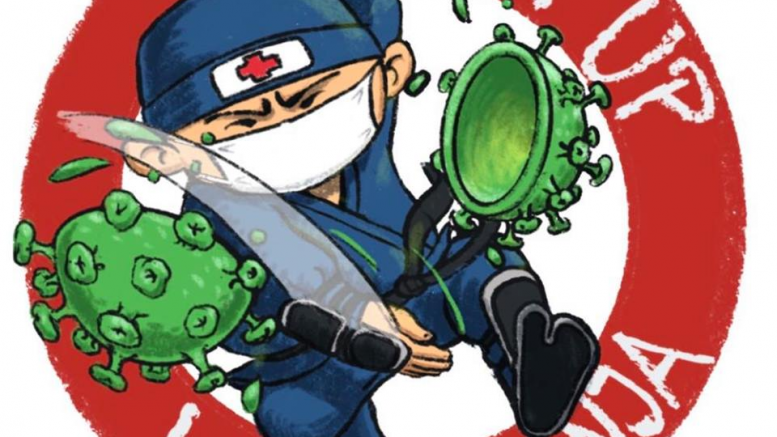
There is no time to waste.
By Michael A, Fisher
Salon (7/31/20)
In the U.S., COVID-19 is spreading like wildfire. At the same time, the research community is learning more and more about how the coronavirus gets from one person to another. There are many nuances, and we don’t know everything about it yet. But we’re in an emergency, and we do have actionable facts. To help break through the noise, the public should be warned, plainly, and often: The coronavirus is airborne.
Researchers and medical practitioners have spent months pressing the public health establishment to evolve on messaging about the ways that COVID-19 spreads. At first, many experts thought that the virus spread mainly via large droplets, like those that fly out of your mouth and fall to the ground within a few feet, particularly when you cough. Then it became clear that people without coughs or other symptoms could—and, in many, many cases, do—spread the virus too. In an April 1 letter to the White House, the National Academy of Sciences raised concerns about the risk of the spread of the coronavirus through small droplets, which can accumulate around us as we talk and even as we breathe normally. Two days later, the Centers for Disease Control and Prevention recommended people could wear “face coverings” over their mouths and noses if they wanted. In early July, 239 scientists called on the World Health Organization to finally recognize the risk of airborne transmission of COVID-19. WHO now acknowledges that coronavirus-carrying droplets may remain suspended in the air in crowded indoor spaces, but its messaging tends to convey the risk of airborne spread of COVID-19 as an afterthought. For example, a WHO Q&A page gives the impression that if we’re all staying about 3 feet away from one another, the distance they recommend, and taking care to wash our hands, everything will be OK.
It won’t be. The updated message that needs to reach people is: In addition to visible routes of transmission like getting coughed on or touching a surface and then your face, COVID-19 can spread through the air we breathe, particularly indoors. Or more succinctly: The coronavirus is airborne. Repeat it. …
*****
Brain Fog, Phantom Smells & Tinnitus: My Experience As A Covid ‘long hauler’
The CDC has been slow to recognize long haulers, let alone provide any guidance for us.
By Hannah Davis
The Guardian (8/5/20)
I just passed the four month mark of being sick with Covid. I am young, and I had considered myself healthy.
My first symptom was that I couldn’t read a text message. It wasn’t about anything complex – just trying to arrange a video call – but it was a few sentences longer than normal, and I couldn’t wrap my head around it. It was the end of the night so I thought I was tired, but an hour later I took my temperature and realized I had a fever. I had been isolating for 11 days at that point; the only place I had been was the grocery store.
Many of us are on the young side, and many parents in the support groups report that their children are long haulers as well.
My Day 1 – a term people with Long Covid use to mark the first day of symptoms – was 25 March.
Four months later, I’m still dealing with a near-daily fever, cognitive dysfunction and memory issues, GI issues, severe headaches, a heart rate of 150+ from minimal activity, severe muscle and joint pain, and a feeling like my body has forgotten how to breathe. Over the past 131 days, I’ve intermittently lost all feeling in my arms and hands, had essential tremors, extreme back, kidney, and rib pain, phantom smells (like someone BBQing bad meat), tinnitus, difficulty reading text, difficulty understanding people in conversations, difficulty following movie and TV plots, sensitivity to noise and light, bruising, and petechiae – a rash that shows up with Covid. These on top of the CDC-listed symptoms of cough, chills, and difficulty breathing.
I had neurological symptoms early on. Everything felt foggy and far away. I forgot everything, even things that had happened a few minutes earlier. …

